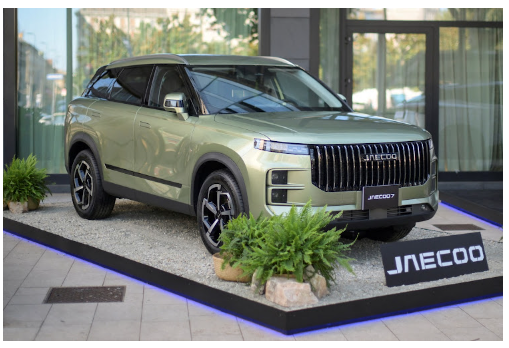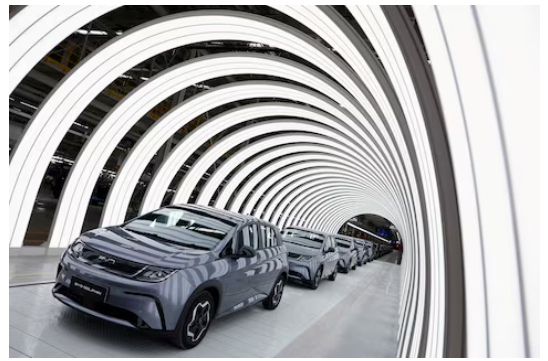 German carmakers, including BMW, Volkswagen, and Mercedes-Benz, have voiced strong opposition to proposed EU tariffs on electric vehicles (EVs) imported from China. These tariffs, which could reach as high as 35.3%, were suggested by the European Commission after a year-long investigation into what it claims are unfair subsidies provided by the Chinese government to its automakers. The Commission’s goal is to protect European carmakers from what it perceives as a threat to the EU’s automotive industry, as Chinese EV exports have surged in recent years.
German carmakers, including BMW, Volkswagen, and Mercedes-Benz, have voiced strong opposition to proposed EU tariffs on electric vehicles (EVs) imported from China. These tariffs, which could reach as high as 35.3%, were suggested by the European Commission after a year-long investigation into what it claims are unfair subsidies provided by the Chinese government to its automakers. The Commission’s goal is to protect European carmakers from what it perceives as a threat to the EU’s automotive industry, as Chinese EV exports have surged in recent years.
However, German automakers argue that imposing tariffs would be counterproductive, as they rely heavily on China for both production and sales. China is a crucial market for Germany’s automotive sector, with BMW generating nearly a third of its global sales from China in early 2024. German manufacturers fear that these tariffs could trigger retaliatory actions from China, which might impose its own duties on luxury cars and automotive parts imported from Europe. This could harm German businesses that export high-end vehicles, such as BMW’s Mini EV and Volkswagen’s Audi models.
 Industry leaders, including BMW’s CEO Oliver Zipse, have expressed concerns that tariffs could escalate into a broader trade war. They argue that operating in a globalized industry offers competitive advantages that could be lost due to protectionist policies. German carmakers, supported by the German government and the national automotive industry association (VDA), have called for negotiations and diplomacy to avoid such tariffs. The German Automotive Industry Association has labeled the move as a step away from global cooperation, urging both the EU and China to seek a less confrontational solution.
Industry leaders, including BMW’s CEO Oliver Zipse, have expressed concerns that tariffs could escalate into a broader trade war. They argue that operating in a globalized industry offers competitive advantages that could be lost due to protectionist policies. German carmakers, supported by the German government and the national automotive industry association (VDA), have called for negotiations and diplomacy to avoid such tariffs. The German Automotive Industry Association has labeled the move as a step away from global cooperation, urging both the EU and China to seek a less confrontational solution.
This debate reflects the larger tension between European efforts to shield domestic industries from competition and the realities of global trade, especially as automakers transition toward electric vehicles and rely on international supply chains. Some EU countries, including France and Italy, support the tariffs, while others like Germany, Spain, and Hungary remain strongly opposed, fearing the economic consequences of a potential trade conflict with China.
Ennywealth


